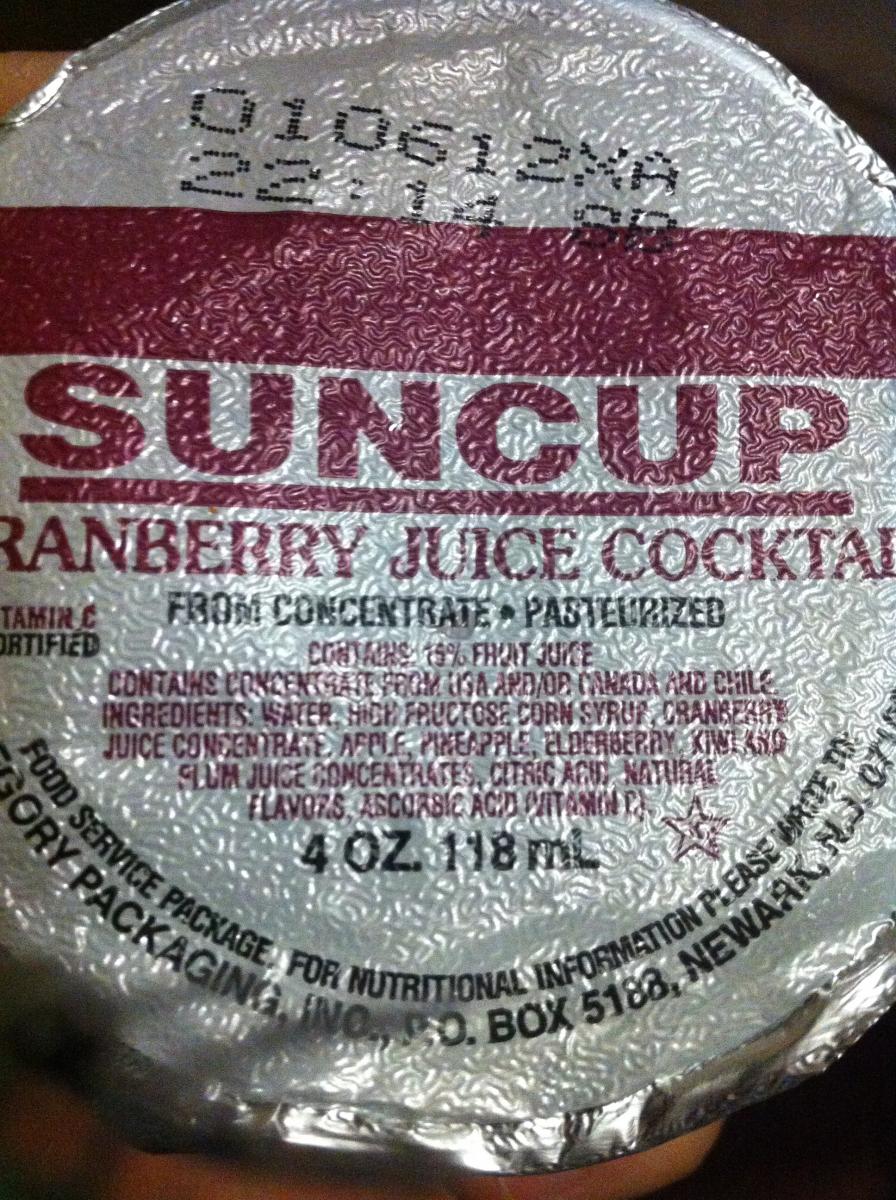Hospital Food and Your Health
Why are we being fed the worst food on the planet in our most advanced hospitals?

Because it's cheap! Hospitals are a business and cut corners just like most business out there. The problem is that where they cut, is where they are doing a disservice to your health. This is pure negligence in my opinion. My wife recently found herself in the hospital from a dizzy spell (later found out it was the flu) but when asked to bring some real juice to bring her blood sugar up to normal, they brought me this cup of joy. High fructose corn syrup and lots of preservatives were the main ingredients. Let's just go through some of the side effects of consuming this non-food.
Difference Between Glucose and Fructose
Since HFCS is a blend of glucose and fructose, it’s important to understand the role each plays in your body. All sugars, indeed all carbohydrates, have four calories per gram.
But that is just part of the story.
Glucose (dextrose) is a monosaccharide (basically, a simple sugar), which is the form of sugar that is transported in the blood and is used by the body for energy. This is what you measure when testing your blood glucose or blood sugar.
Fructose is also a monosaccharide and is often referred to as fruit sugar, because it is the primary carbohydrate in most fruits. It’s also the primary sugar in honey and half the carbohydrate in sucrose (table sugar). However, fructose does not stimulate
secretion or require insulin to be transported into cells, as do other carbohydrates.
What It Means to You and Your Diabetes
As a person with diabetes, you know how important it is to control your blood glucose and insulin levels to avoid complications. So, it would seem that a lack of glucose and insulin secretion from fructose consumption would be a good thing.
However, insulin also controls another hormone, leptin, so its release is necessary.
Leptin tells your body to stop eating when it’s full by signaling the brain to stop sending hunger signals. Since fructose doesn’t stimulate glucose levels and insulin release, there’s no increase in leptin levels or feeling of satiety. This can leave you ripe for unhealthy weight gain.
Fructose in the Body
Fructose requires a different metabolic pathway than other carbohydrates because it basically skips glycolysis [normal carbohydrate metabolism]. Because of this, fructose is an unregulated source of “acetyl CoA,” or the starting material for fatty acid synthesis. This coupled with unstimulated leptin levels opens the flood gates of fat deposition.
Should Fructose Be Eliminated From the Diet?
It’s not that you should eliminate fructose from your diet, but you should be aware of how much you’re consuming. After all, fructose is the primary sugar found in fruits, which provide valuable nutrients. In this case, a little fructose is fine. It becomes a problem only when someone consumes high levels of fructose or HFCS, which is now present in virtually all commercial foods (see below).
Check the Food Labels
If HFCS is one of the first ingredients listed in soft drinks or syrup, it is safe to assume there’s a lot in the product. If HFCS is in the products you buy, don't buy it... (my professional opinion, of course)
What Does It All Mean?
If HFCS is one of the first ingredients listed on a food label, don’t eat it. Make a mental list of the worst culprits, such as regular soft drinks and many highly sweetened breakfast cereals. So what’s the answer? It’s easy. Avoid HFCS by reading food labels and shopping the grocery store’s perimeter: Produce, seafood, meat and poultry on another, and eggs. Avoid the center aisles, which are mostly stocked with highly processed foods.
The more you stick to fresh whole foods and avoid commercial and highly processed foods, the less HFCS you will consume.
Now Serving Chatham, Madison, Morristown, Summit, Short Hills, Millburn, Springfield, New Providence, Florham Park, Woodland Park, Mountainside, Berkeley Heights, Convent Station, Livingston, Maplewood, and various parts of Union, Morris and Essex County, NJ (New Jersey). We have personal trainers that suit every need.
- Administrator's blog
- Log in to post comments

